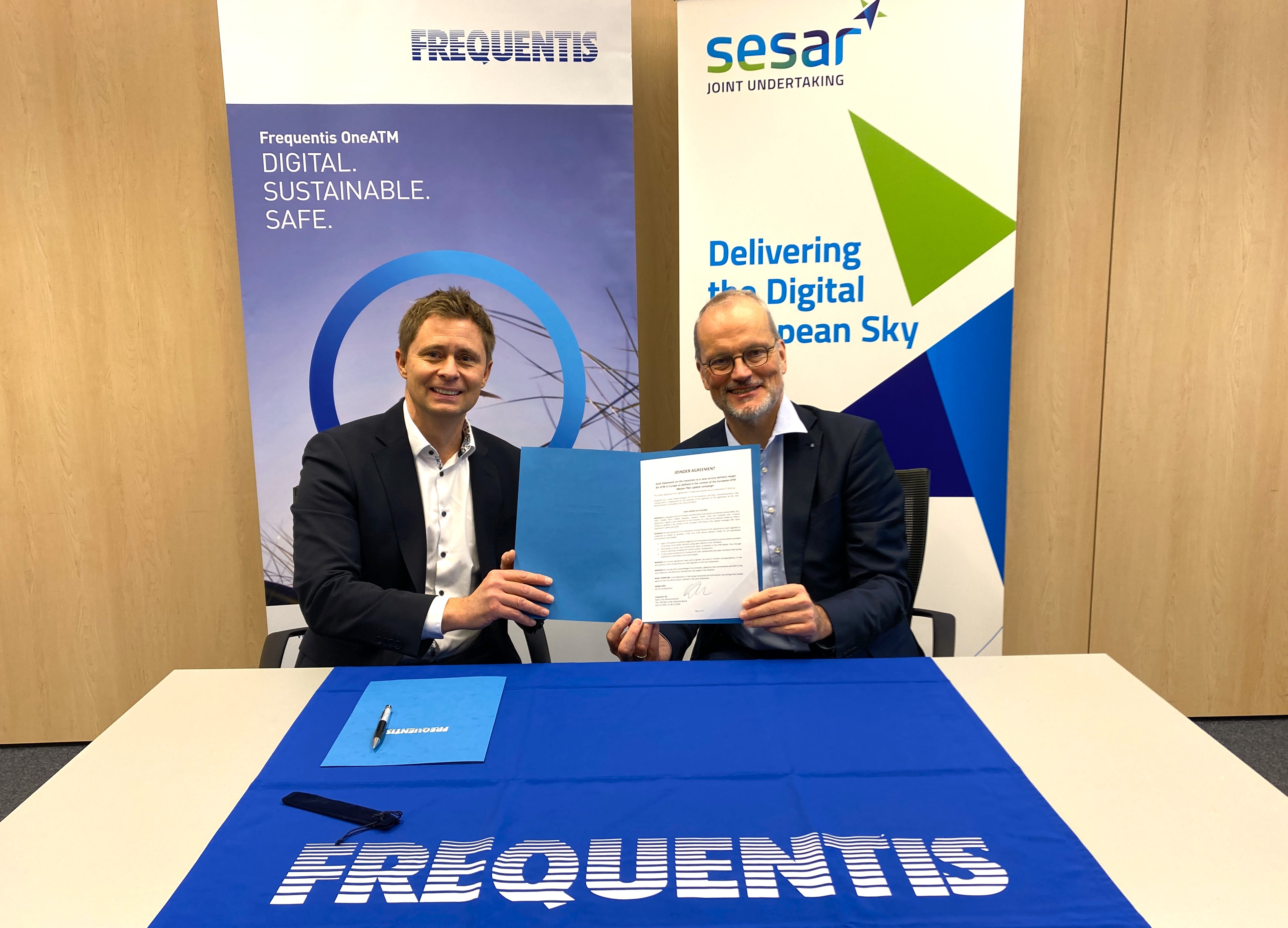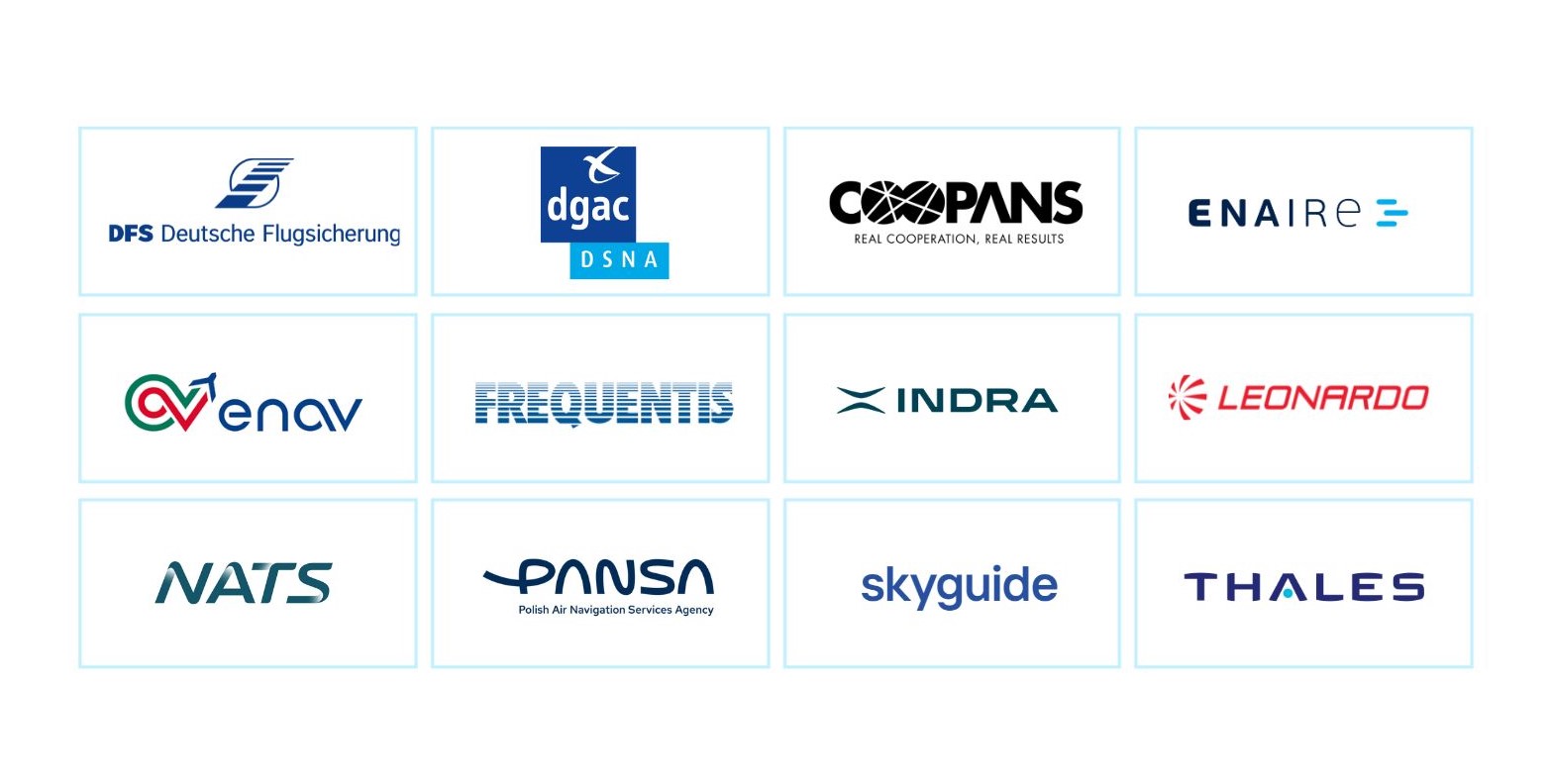On 6 December, Frequentis officially joined a growing list of industry leaders committed to transitioning to a new service delivery model for air traffic management (ATM) in Europe. By signing the joint statement, Frequentis reinforces its dedication to advancing the modernisation and digitalisation of European airspace, as envisioned in the European ATM Master Plan.

This important step builds on the original commitment made on 20 June, when CEOs from the A6 Alliance of air navigation service providers—COOPANS, DFS, DSNA, ENAIRE, ENAV, NATS, PANSA, Skyguide—and general managers from industry manufacturers, Indra, Leonardo, and Thales, signed the statement.
Frequentis' endorsement underscores the urgency of collective action to implement a data-driven, cloud-based service-oriented architecture (SOA) that will enhance aviation's safety, efficiency, and sustainability across Europe.
“This joint statement shows our strong commitment to the advancement of air traffic management,” says Karl Wannenmacher, CTO Frequentis. “It aligns perfectly with our Open Digital Platform initiative, which aims to create a standardised and flexible operational environment for ATM services, enabling the seamless integration of new technologies and ensuring collaboration across technology manufacturers and air navigation service providers.”
Joint Statement
Transition to a New Service Delivery Model for ATM in Europe
In the Context of the European ATM Master Plan Update Campaign
We, the undersigned, reaffirm our continued commitment to the Digital European Sky, the European vision for the modernisation and digitalisation of our airspace and air traffic management system to make our sky the most efficient and environmentally friendly one to fly in the world.
We recognise the urgency and the necessity of this transformation, especially in the light of the unprecedented challenges posed by the increase in traffic, the war in Ukraine, and the climate crisis. We are convinced that a Digital European Sky will further enhance the safety, efficiency, resilience, and sustainability of the aviation sector and contribute to the competitiveness of our economies. It will provide further resilience, scalability, and more flexibility in case of occurrences that heavily impact the traffic flow and demand in Europe (e.g., pandemic, volcanic eruptions, etc.).
To facilitate deeper and faster changes across the five transformation levers identified in the European ATM Master Plan, the current service delivery model, which relies on existing architectures, urgently needs to be replaced by a modern, data-driven, and cloud-based service-oriented architecture (SOA) delivery model. This new approach will allow for quicker deployment of new features and improvements while ensuring interoperability in operations, airspace, and technology across ANSPs.
Moreover, the transition to SOA will facilitate the development of a technical regulatory framework for future air traffic management in Europe. Rather than overhauling and certifying an entire system, this future-proof framework will enable the development or update of specific services to meet new standards. In doing so, it will be better aligned with best practices applied in other safety- and security-critical sectors.
Future challenges for Service-Oriented Architecture, to be tackled with priority, include:
- Modernising CNS service provision to accompany the new service delivery model with new technical enablers and high-performance air and ground connectivity.
- Identifying an adequate cybersecurity perimeter enabling the decoupling between service and infrastructure and the delivery of services from distributed sources.
This joint statement is an expression of commitment by the signatories to work together to implement as rapidly as possible a new core ATM service delivery model for all operational environments that enables:
- Open ATM patterns integrating components from various system providers to facilitate multi-vendor solutions using open platforms and interfaces.
- Decoupling of service and infrastructure layers as defined in the ATM Master Plan through Cloud Computing (including the various system components).
- A cloud-native architecture of components with standardised and open interfaces that can be deployed on commodity cloud technologies.
For this implementation to be a success, we commit to working together in a spirit of collaboration, trust, and partnership under the SESAR umbrella (SESAR Joint Undertaking and SESAR Deployment Manager), together with other SESAR participants and partners who are willing to join this statement and also support operational use.
In order to be successful, we also need appropriate legal, regulatory, financial, and standardisation frameworks to be put in place to enable a rapid transition to the new service delivery model.
We will ensure regular periodic reviews through existing processes and with other actors as we transition to the technology defined above, in order to keep the pace of the ATM Master Plan roadmaps and to enable a new era for aviation in a Digital European Sky.
We invite all partners to join this initiative.
Interested in joining? Contact Alain Siebert for more details.

